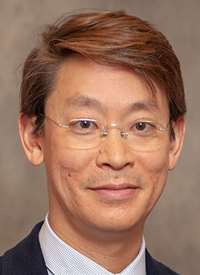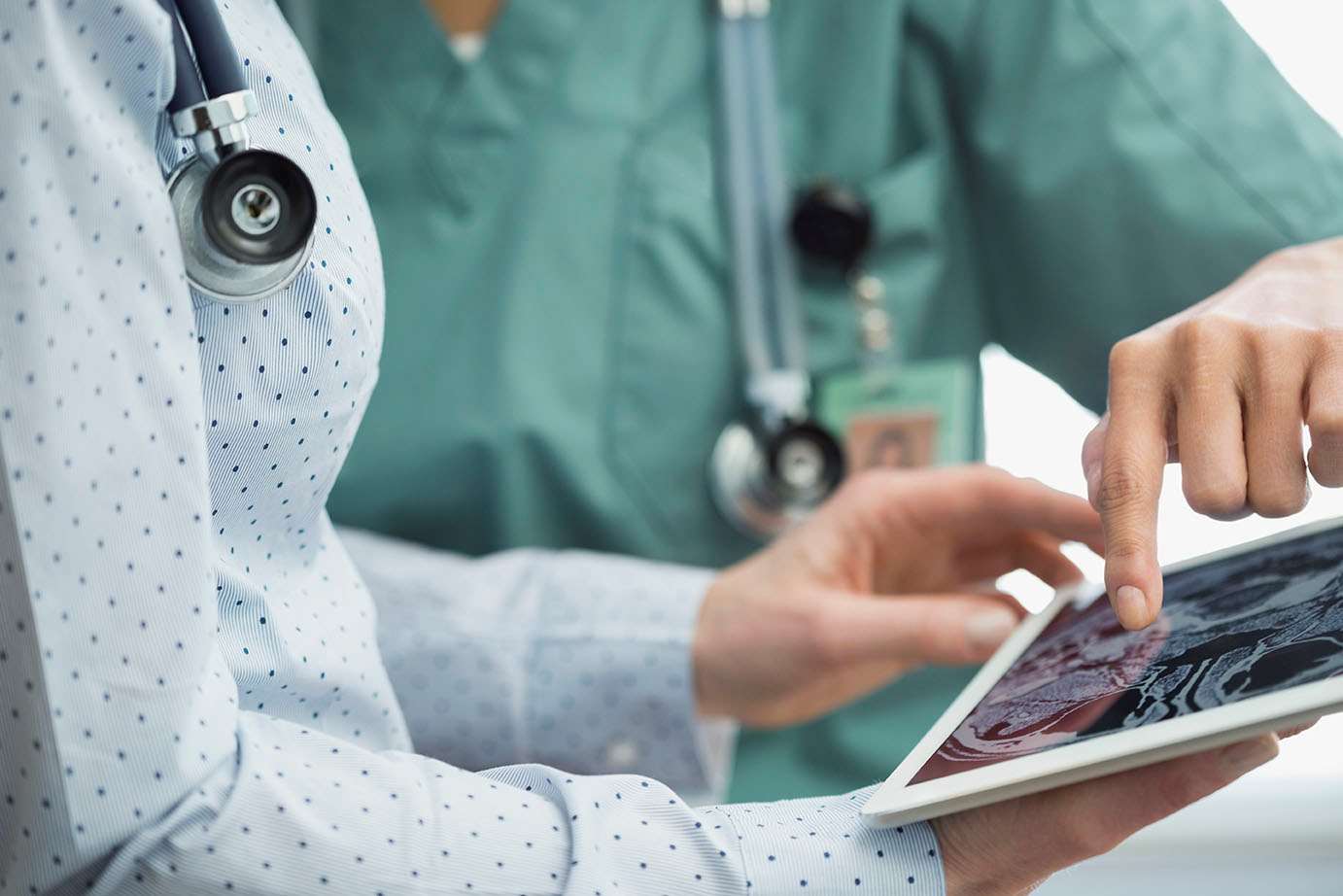Froedtert & the Medical College of Wisconsin Cervical Myelopathy Program

The Center for Cervical Myelopathy
Froedtert Hospital and the Medical College of Wisconsin have developed a unique cervical myelopathy rehabilitation pathway that utilizes individualized therapy targeting common symptoms of degenerative cervical myelopathy to aid in the recovery of pre-surgical deficits after surgery.
Diagnosis
Common Symptoms
Common symptoms present in any number of order and severity. However, not all symptoms may be present, and there is not a standard set of symptoms that all patients experience. You may experience some or all of these symptoms at different time points. Common symptoms include:
- Neck pain/stiffness
- Loss of manual/hand dexterity
- Alterations in gait or gait impairment
- Imbalance/unsteadiness/falls
- Paraesthesia (tingling or pins and needles sensations)
- Upper limb weakness, numbness
- Lower limb stiffness, weakness, or sensory loss
- Unilateral or bilateral limb/body pain
- Autonomic symptoms such as bowel or bladder incontinence, erectile dysfunction, or difficulty passing urine
Workup
Questionnaires and Assessments
- Modified Japanese Orthopaedic Association assessment (mJOA)
- Short Form 36—Physical Component Summary (SF36-PCS)
- Neck Disability Index (NDI)
- Cervicospinal Dissociation Injury (CSDI)
- 10 item Patient-Reported Outcome Measurement Information System Global Health Survey (PROMIS10)
Imaging
- Magnetic Resonance Imaging (MRI)
- Radiograph
- Computed Tomography (CT)
Neurophysiological Testing
- Electromyography (EMG)/ Somatosensory evoked potentials (SSEPs)
Treatment Approaches
Learn more about Cervical Myelopathy
Center for Cervical Myelopathy
The Center for Cervical Myelopathy at the Medical College of Wisconsin Department of Neurosurgery seeks to promote public awareness of and facilitate specialized care for individuals suffering from Cervical Myelopathy.Learn more about the Center for Cervical Myelopathy
Internal and Affiliative Resources
Spinal Cord Injury Program at Froedtert | SPINECare at MCW
Spinal Cord Injury Discussion and Support Group at Froedtert
External Resources
Patient Care Specialists
Multidisciplinary clinical care for DCM is delivered through SpineCare at Froedtert Hospital and the Medical College of Wisconsin.

Diane W. Braza, MD
Professor

Heather M. Curtiss, MD, MS
Associate Professor

Jordan Gliedt, DC
Associate Professor

Dan S. Heffez, MD, FRCS
Professor

Jeffrey A. King, DC, MS
Associate Professor

Shekar N. Kurpad, MD, PhD
Professor; Senior Associate Dean, Neuroscience; Founding Director, Wisconsin Institute of NeuroScience (WINS)

Max C. Lee, MD
Assistant Professor

N Timothy Lynch, PhD, ABPP
Adjunct Professor

Carrie A. Jones, MD
Assistant Professor

P. Andrew Nelson, MD
Associate Professor

Boyd M. Peterson, DC, FIANM, DACBSP, CSCS
Assistant Professor

Saman Shabani, MD
Assistant Professor

Bindiya Shah, DO
Assistant Professor

Carley N. Sauter, MD
Associate Professor

Karin R. Swartz, MD, FAAN
Assistant Dean, Professor

Aditya Vedantam, MD
Associate Professor

Marjorie Wang, MD, MPH, FAANS
Chief, Professor

John P. Wanner, MD
Assistant Professor

Gregory L. Whitcomb, DC
Associate Professor

Christopher E. Wolfla, MD
Professor
Contact Us
For assistance in acquiring patient care specific to your needs, the Center for Cervical Myelopathy is supported by patient care services at both Froedtert Hospital and the Medical College of Wisconsin.
Spinal Cord Injury Program at Froedtert Hospital
Patient Support Portal
Spinal Cord Injury Program at the Medical College of Wisconsin
Michelle Wesline, RN - Program Coordinator
Froedtert Occupational & Group Therapy
Taylor Rickard - Occupational Therapist and Group Facilitator



